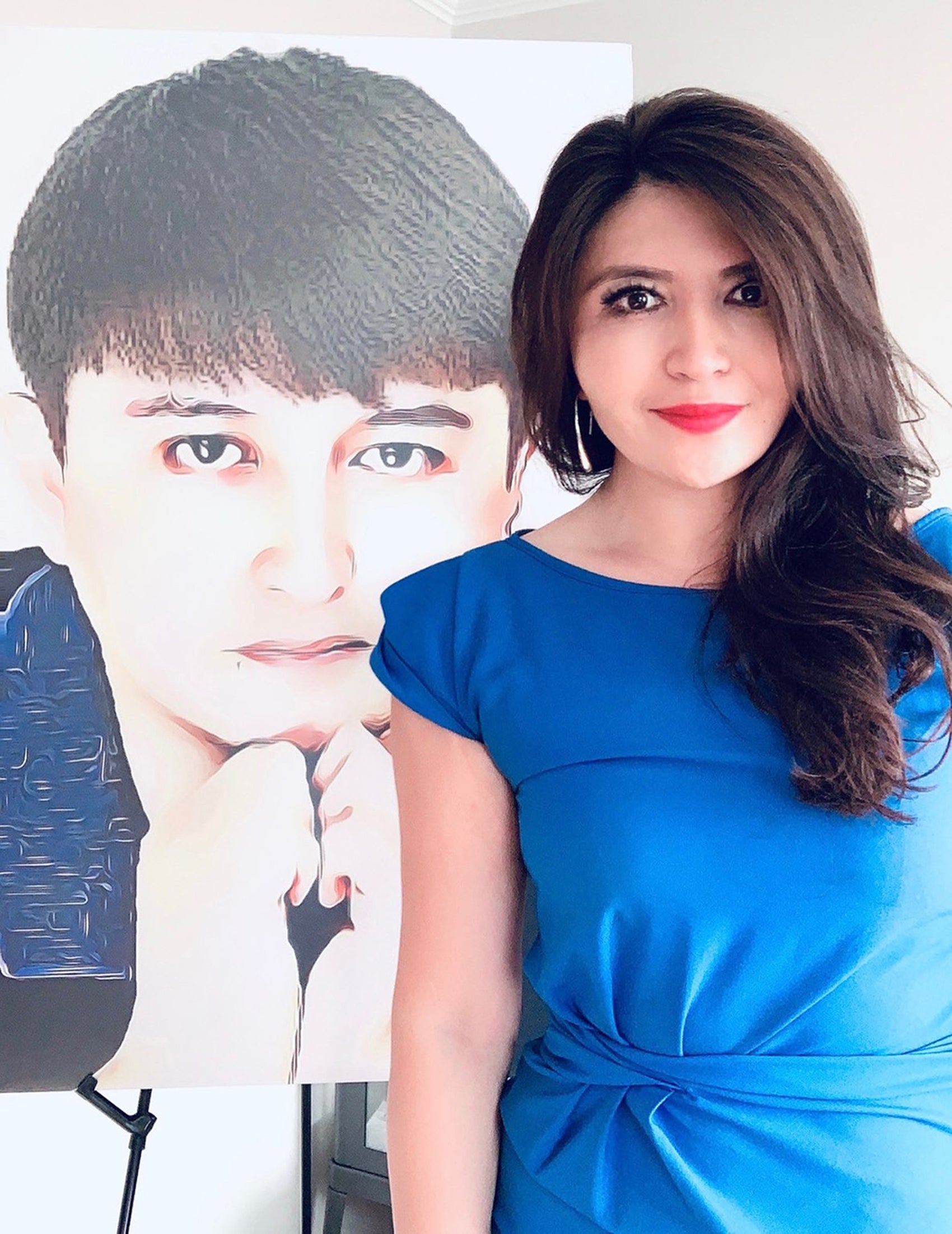On her Twitter account, Rayhan Asat LL.M. ’16 offers a brief list of her credentials, including lawyer, Harvard Law grad, and president of the American Turkic International Lawyers Association. It also includes something that stands out starkly: “Proud Sis of a Concentration Camp Victim.”
She is referring to her brother, Ekpar Asat, a Uyghur entrepreneur and philanthropist who after participating in the U.S. State Department’s International Visitor Leadership Program was detained by the Chinese government, then sentenced to 15 years in prison for “inciting ethnic hatred and ethnic discrimination,” according to Amnesty International. Rayhan says that Ekpar was seen in a video in which he looks extremely thin. And she believes that he was transferred to a facility far from home and is being held in solitary confinement. He is one of more than a million Uyghur people, a predominantly Muslim ethnic group from the Xinjiang region of China, estimated to have been held in internment camps ostensibly for “re-education” and subjected to forced labor and other abuses.
While Rayhan has continued to live and work in the United States since her studies at Harvard Law, her brother’s absence is ever present, as is her devotion to securing his freedom and seeking human rights for the Uyghur people and others oppressed throughout the world.
“I think the most dehumanizing aspect of this is the disrespect for human dignity,” she said. “My brother, and all these victims, previously before the camps were established, they lived such dignified lives. But now suddenly they’re taken away and being taught every day that they are extremists, that they need to undergo this kind of political indoctrination to be a ‘normal’ human being.”
For a time, she didn’t speak publicly about what happened to her brother. Initially, she feared potential retaliation against her and her parents, who live in China. But after nearly four years of Ekpar’s continued detention, she decided to share his story at a panel discussion on abuses committed by the Chinese government against Uyghur minorities held by HLS Advocates for Human Rights in March last year. The organization also cosponsored an event held on April 7 to mark the five-year anniversary of Ekpar’s detention and to call for his freedom, which included remarks by U.S. Senator Chris Coons and HLS Professor Martha Minow. Rayhan spoke at the event as well and is grateful for the ongoing support of the Harvard Law community. As part of her advocacy work, she has set up a website where people can learn how to support her campaign.
Her journey to Harvard Law and the United States was inspired by the example and guidance of her parents, who value education and emphasized when she was growing up that she could achieve any goal she desired. They also inspired her to care about injustice, which led her to become a lawyer. Her facility with languages (she is conversant in five of them) opened up opportunities to explore the world, including earning her first law degree in Toronto and working for an international law firm in Istanbul. Today, Rayhan lives in Washington, D.C., where for several years she worked on anti-corruption investigations with Hughes Hubbard and Reed. She is focused now on writing and speaking on human rights, in particular advocating for her brother. Later this year, Rayhan will serve as a World Fellow at Yale University.
Wherever she goes, she brings the Uyghur culture with her. It is communal, with a “sense of unspoken love toward each other,” she said. After she moved into her apartment building in D.C., she knocked on her neighbors’ doors and invited them to dinner. Though asking strangers to dinner is not exactly part of D.C. culture, her neighbors accepted and have become her friends. “We’re very passionate people who just love life in its full colors and abundance,” she said.
She plans on staying in the United States and continuing to promote human rights. She also may seek a role to help craft foreign policy and bolster international relations, bringing a perspective shaped by personal experience.
“I think people like me who have experienced unspeakable tragedies truly understand and appreciate how policies have ramifications,” she said. “So when you design a policy, you come from a place of compassion and understanding that we’re talking about human lives. We’re talking about citizens of the world whose lives would be affected by every policy that the U.S. lawmakers make.”
Rayhan wants people to know that her brother has lived his entire life seeking to build bridges and foster peace, both at home and internationally. When Ekpar came to the United States for the State Department program, he was proud to represent a diverse China and the Uyghur people. He is her best dance partner. Always kind and thoughtful, he would bring her flowers whenever he greeted her at an airport. The next time she meets Ekpar, she plans to bring flowers for him.
